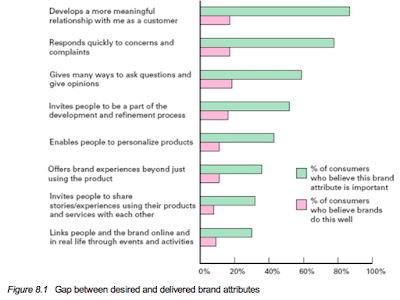Recentemente em "
Onde trabalhar?" usei esta figura:
e escrevi:
"Infelizmente, muitas PME contentam-se em trabalhar na zona A muito mais do que na zona B"
Trabalhar na zona A é trabalho honesto. No entanto, ter sucesso à custa do trabalho na zona A não é para quem quer, é para quem pode.
Entretanto, leio "
Stop Focusing on Profitability and Go for Growth" e começo por acreditar estar perante um convite descarado ao fragilismo:
"In these circumstances, strategies that generate faster growth create more value for most companies than those that improve profit margins."
No entanto, a continuação da leitura surpreendeu-me de outra forma. Por "strategies that generate faster growth" o autor entende tratarem-se das estratégias de subida na escala de valor. Ou seja, trabalhar na zona B. E, por "those that improve profit margins" o autor entende as abordagens obcecadas com a redução de custos, o trabalhar na zona A. Um autêntico newspeak!!!
Imaginem alguém que acredita no poder da frase: "Volume is vanity, Profit is sanity" apanhar um texto em que "more growth" quer dizer uma coisa diferente do habitual e "more profit margins" quer dizer exactamente o contrário do que é costume.
"Historically, when debt and equity costs were high, for most companies the trade-off between profitability and growth favored profitability. Accordingly, business leaders sought to improve efficiency by employing Six Sigma, process reengineering, spans and layers, and other tools."
Fantástico newspeak!!! Mais lucro à custa de mais eficiência. Será que a inteligentzia americana não vê outra alternativa para aumentar os lucros que não passe pela redução dos custos unitários?
"So if companies should value growth more than margins these days, why don’t they? In our experience, companies still focus more on cutting costs than on developing and executing new growth strategies. Reuters found that total new capital expenditures and spending on R&D was less than the amount many companies devoted to share repurchases last year. Finally, in earnings call after earnings call, we hear CEOs describing one or two bets — at most — on growth, and devoting most of the time to showcasing the results of restructuring, offshoring and other cost-focused initiatives."
Estranho texto este em que parte da mensagem replica o que aqui defendemos há mais de 10 anos com uma linguagem que usa com outro significado o que costumamos criticar.
BTW, recordando esta figura:
Se o custo do dinheiro baixa, baixa a necessidade de rentabilidade, reduz-se a necessidade de pureza estratégica, logo, vai aumentar a competição pelo preço mais baixo.




























